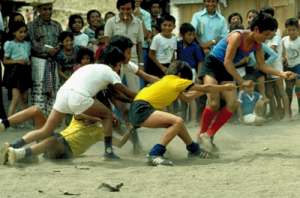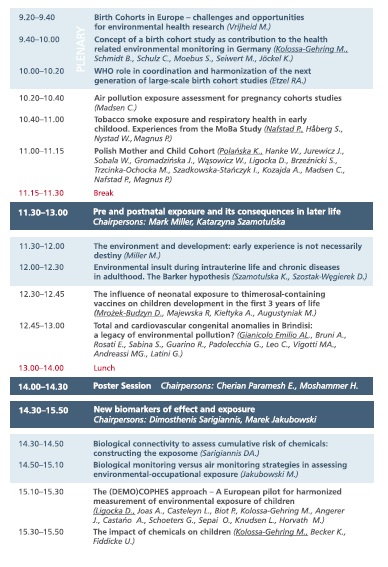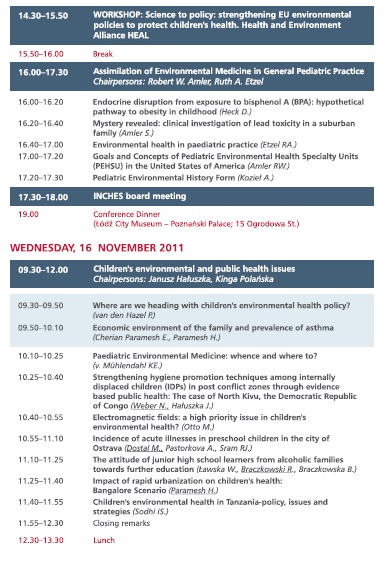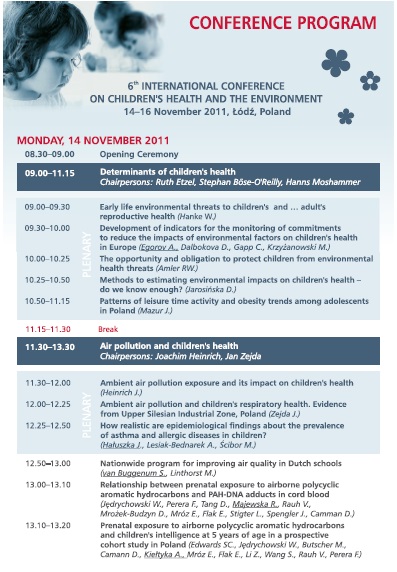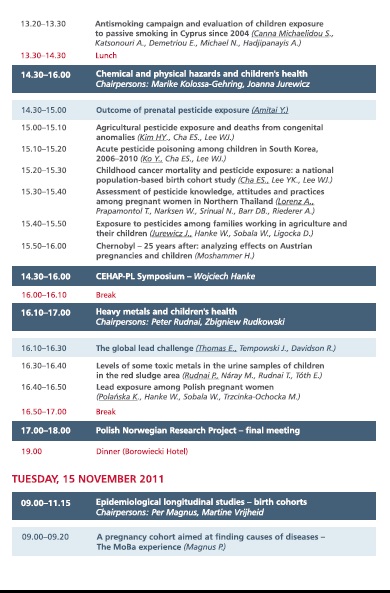HEAL is working on the reduction of coal power plants. In Europe there are several countries that are in the process of phasing out coal power plants. This will benefit children by the substantial reduction of emitted compounds. See HEAL for more information.
By removing bromine atoms from the large Deca PBDE flame retardant used in computers and televisions, microbes may be able to transform it into banned compounds. Research published on ES&T’s ASAP website (DOI: 10.1021/es052508d
documents that microbes can break down the large molecules of the widely used Deca PBDE (polybrominated diphenyl ether) flame retardant. The paper raises concerns about the Deca flame retardant’s safety by showing that various bacteria can work in concert to remove the bromine atoms from the Deca compound to produce the smaller PBDE compounds that have been banned in the EU and discontinued in the U.S.
PAST conferences
9th Conference on Children’s environmental Health in Seoul, Korea, June 2018.
CO-ORGANISED
PPTOX IV, BOSTON, UNITED STATES, 2014
International summit on exposures to environmental hazards during early life and their long term consequences, with a focus on exposures, mechanisms, health effects and implications for clinical practice and policy.
Go to the website for information on the content of that meeting: PPTOX IV

